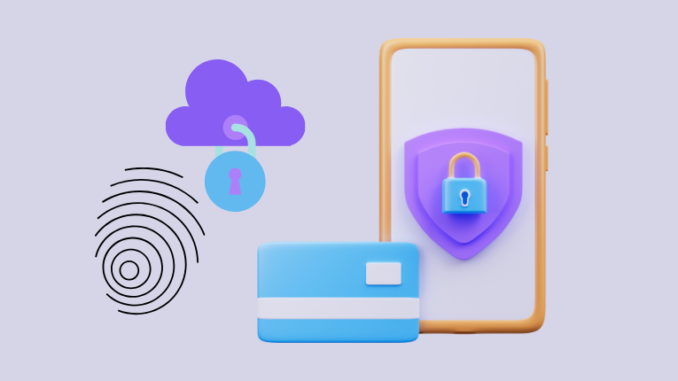
As users navigate the Hidden Wiki and delve into the depths of the dark web, safeguarding their online privacy and anonymity becomes paramount.
Privacy tools help protect users from various threats like surveillance, tracking, and unauthorized access to personal information. These tools enable individuals to enhance their online presence and exercise greater control over their digital privacy. Let’s delve into the expanded benefits provided by privacy tools.

Protection against Surveillance
Privacy tools act as a powerful defense against surveillance efforts by various entities, such as government agencies, ISPs, or malicious actors. By utilizing tools like VPNs and the Tor Browser, users can obscure their IP addresses and encrypt their internet traffic. This ensures that their online activities remain private and shielded from prying eyes. Privacy tools create a barrier that makes it exceedingly difficult for surveillance entities to monitor and track an individual’s browsing habits, protecting their digital footprint.
Prevention of Tracking Activities
The use of privacy tools thwarts tracking mechanisms employed by advertisers, data brokers, and other online entities. Advertisers commonly use tracking technologies like cookies to collect data on users’ online behavior and interests. Privacy-focused browser extensions, like Privacy Badger or uBlock Origin, disrupt these tracking activities by blocking tracking scripts and preventing the collection of user data. This helps individuals maintain control over their online identities and reduces the sharing of personal information with others.
Safeguarding Personal Information
Privacy tools protect personal information from unauthorized access. Encryption tools and secure messaging apps ensure the security of sensitive data, including messages, files, and stored information, preventing interception by unauthorized parties. Password managers play a crucial role in generating and managing strong, unique passwords for different accounts, reducing the risk of unauthorized access due to weak or reused passwords. By employing these tools, users can significantly enhance the security of their personal information and mitigate the potential impact of data breaches or identity theft.
Shielding Against Location Tracking
Certain privacy tools, particularly VPNs, allow users to mask their physical location. By connecting to servers located in different regions or countries, individuals can effectively obfuscate their actual geographical location. This prevents malicious actors or surveillance entities from pinpointing a user’s precise whereabouts. The ability to change one’s apparent location adds an extra layer of anonymity and protects against location-based tracking or targeted surveillance.
Preserving Anonymity
Privacy tools play a crucial role in preserving online anonymity. By using technologies like Tor, users can hide their exactness and make it difficult for anyone to track their online activities back to them. The Tor Browser, for instance, routes internet traffic through multiple relays, encrypting it at each step, thereby concealing the user’s origin and destination. This heightened level of anonymity ensures that individuals can navigate the Hidden Wiki and the dark web without fear of their identities being compromised.
Mitigating Risks in Untrusted Networks
When accessing the Hidden Wiki or any other online platform outside the confines of a trusted network, privacy tools become particularly vital. Public Wi-Fi networks, for example, pose inherent security risks. By using a VPN while connecting to these networks, users create an encrypted tunnel that shields their data from potential eavesdropping or interception by attackers sharing the same network. Privacy tools offer a vital layer of protection, enabling individuals to browse and communicate safely, even in untrusted environments.
In this article, we will delve into several privacy tools that can boost security and anonymity for individuals using the Hidden Wiki, empowering them to confidently navigate the dark web.
Virtual Private Networks (VPNs)
Virtual Private Networks (VPNs) are essential tools for preserving privacy and anonymity while accessing the Hidden Wiki. A VPN creates a safe encrypted link between the device and the internet. It directs their internet traffic through a remote server, hiding their IP address and encrypting their data. This ensures privacy and makes monitoring the user’s online activities challenging for ISPs, government agencies, or other entities.
Tor Browser
The Tor Browser is a widely used privacy tool that facilitates anonymous browsing on the dark web, including the Hidden Wiki. It uses the Tor network, servers run by volunteers, to make internet traffic anonymous. This is done by encrypting and bouncing the traffic through several relays. This network anonymizes internet traffic by encrypting and bouncing it through multiple relays. This makes it challenging to trace the user’s origin and destination. The Tor Browser provides anonymity and includes built-in privacy features such as cookie management, script blocking, and HTTPS Everywhere, ensuring secure connections whenever possible.
Secure Messaging and Communication
Maintaining secure and private communication is crucial when engaging with the Hidden Wiki. Encrypted messaging apps like Signal and Wickr provide end-to-end encryption, ensuring only the planned recipients can read the messages. These apps prioritize user privacy and protect against surveillance, intercepting communication, and data breaches. Utilizing secure messaging tools is essential for exchanging sensitive information or discussing topics on the dark web while minimizing the risk of interception.
Password Managers
Protecting online accounts with strong and unique passwords is vital for maintaining privacy and security. Password managers, such as LastPass and KeePass, enable users to generate and store complex passwords for different websites securely. This eliminates the need to remember multiple passwords while ensuring each account remains protected. Users can bolster their online security and protect their accounts from unauthorized access by utilizing password managers.
Two-Factor Authentication (2FA)
Enabling 2FA provides an additional layer of protection for online accounts. 2FA requires users to provide an additional verification factor, such as a temporary code sent to their mobile device and the password. This prevents unauthorized access, even if the password is compromised. Most online platforms, including those accessed through the Hidden Wiki, offer 2FA as a security option. Users can activate this feature whenever possible to bolster their account security.
Anti-Malware and Firewall Software
Protecting against malware, viruses, and other digital threats is crucial when exploring the Hidden Wiki. Anti-malware software removes any harmful software that can risk a user’s privacy and security. Additionally, having a reliable firewall provides an added layer of protection by monitoring and controlling incoming and outgoing network traffic, mitigating potential threats and unauthorized access attempts.
Bitcoin and Cryptocurrencies
Cryptocurrencies like Bitcoin offer enhanced privacy when engaging in transactions on the dark web, including purchases from hidden marketplaces or services. Bitcoin transactions propose some anonymity as they are not directly linked to a user’s identity. However, it’s important to remember that they are not entirely anonymous. Users should be cautious and follow recommended practices when making financial transactions on the dark web.
Disposable Email Addresses
When registering for accounts or accessing certain services on the dark web, it is advisable to use disposable email addresses. Services like Guerrilla Mail or Temp-Mail provide temporary email addresses that can be used for a limited period. Using disposable email addresses allows users to maintain their privacy and reduce the risk of their actual email addresses being linked to their activities on the Hidden Wiki.
Encrypted Cloud Storage
Storing sensitive files and documents on the cloud requires an added layer of security. Encrypted cloud storage services like Tresorit or pCloud use end-to-end encryption to safeguard data stored in the cloud. Using encrypted cloud storage allows users to have complete control over their files. Only the user with the encryption key can access the data, ensuring that unauthorized individuals cannot access it. This enhances data security and reduces the chances of data breaches or unauthorized access.
Privacy-Focused Operating Systems
Privacy-focused operating systems like Tails or Whonix can be utilized for users who prioritize privacy and anonymity. These operating systems are created to improve privacy and security. They come with features like pre-set Tor access, built-in encryption tools, and strong data protection measures. By using privacy-focused operating systems, users can create a more secure environment for accessing the Hidden Wiki and conducting other activities on the dark web.
Browser Extensions and Add-ons
Several browser extensions and add-ons can enhance privacy while browsing the Hidden Wiki. Privacy-focused extensions like Privacy Badger or uBlock Origin help block tracking scripts and prevent unwanted data collection by advertisers. Additionally, add-ons like HTTPS Everywhere enforce secure connections by automatically redirecting websites to HTTPS versions whenever available. By utilizing these extensions and add-ons, users can fortify their online privacy and protect against various tracking mechanisms.
Advanced Security Practices
In addition to privacy tools, implementing advanced security practices is essential when navigating the Hidden Wiki. This includes:
- Regularly updating software and applications to ensure they have the latest security patches.
- Using strong and unique passwords for all accounts.
- Avoiding using any personal information in usernames or passwords.
Regularly backing up important data to external storage devices or encrypted cloud services is recommended to reduce the chances of data loss or unauthorized access.
Security Education and Awareness
Maintaining privacy and security on the Hidden Wiki goes beyond using tools and technologies. Staying informed and educated about emerging threats, best practices, and evolving privacy measures is crucial. Keeping up with the latest developments in privacy and security helps users make informed decisions and adapt their privacy strategies accordingly. Engaging with privacy and security communities, forums, and resources can provide valuable insights and support in protecting personal information while using the Hidden Wiki.
Operational Security (OpSec)
Operational security, often referred to as OpSec, involves adopting practices that limit the potential exposure of sensitive information. This includes minimizing sharing personal details or identifiable information on the dark web, avoiding interactions with suspicious or untrustworthy individuals or platforms, and being cautious about the information disclosed, even within private or encrypted channels. OpSec is crucial to protecting privacy and maintaining anonymity on the Hidden Wiki.
Regular Privacy Audits
Periodically assessing and evaluating one’s privacy measures and practices is essential to adapt to evolving threats and ensure ongoing protection. Conducting privacy audits involves:
- Reviewing the effectiveness of existing tools.
- Updating passwords.
- Checking privacy settings on social media platforms.
- Removing unnecessary personal information online.
By conducting regular privacy audits, users can identify any potential vulnerabilities and take appropriate actions to strengthen their privacy and security posture.
Conclusion
As users explore the Hidden Wiki and navigate the dark web, employing privacy tools is crucial for maintaining online anonymity and safeguarding personal information. Privacy and security are enhanced by using Virtual Private Networks (VPNs), the Tor Browser, secure messaging apps, password managers, two-factor authentication, anti-malware software, firewalls, and cryptocurrencies.
By leveraging these tools effectively, individuals can confidently navigate the Hidden Wiki, ensuring their online presence remains protected from potential surveillance, tracking, and unauthorized access.

Leave a Reply